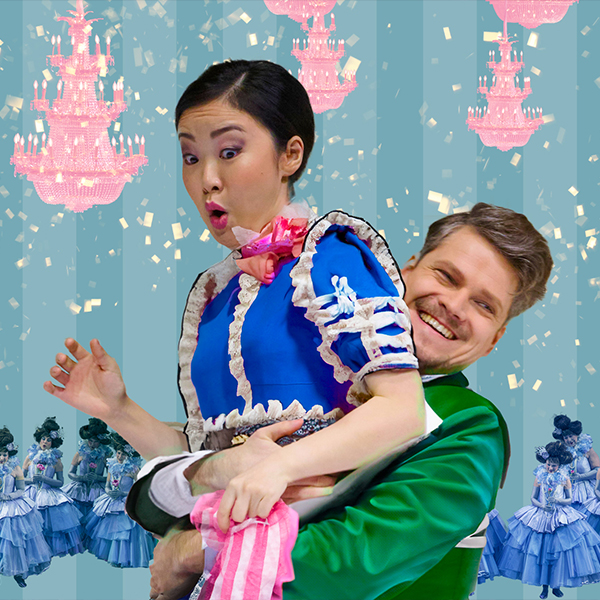October 14, 2024
Director's note: The Marriage of Figaro
I saw my first Figaro a long time ago. It was at the Metropolitan Opera, and I went with my grandmother. I remember loving the music, and feeling so much joy and passion from it — despite the fact that, in truth, those powerful human elements were not being delivered onstage. The production was dark and distant, without much interaction between the characters. I remember listening to the music later, and thereby banishing those visual memories. It was the music that stayed with me — and that is what makes directing opera such a gift. In Mozart's score is a story all about character and human foibles — exactly what I love so passionately in Shakespeare. When Lyric's leadership first approached me to direct Figaro, I thought, "I'll give it the love and the life and the passion that I didn't see all those years ago. I'll stage this opera the way the music makes me feel."
You can't, after all, get to the fourth act of Figaro without feeling you're in heaven! The gods have descended, and it's simply a feast of joy, love, harmony, and grace. Yes, the Count will probably fool around again, but he and the Countess will never leave each other — they share a bond of love despite their frailties. My thought was to explore the confusion and pain within the frailty of love — ending up with forgiveness, joy... and hope.
The opera's action takes place over 24 hours, things happen at the speed of lightning, and people's passions are combustible. It is here that the comedy lies, because, in all honesty, we're all quite combustible when we fall in love. I want our performance to reveal what we feel when we're hit with the extreme emotions — both of love and jealousy. This is not a stylized production, because there's no need for that; Mozart's opera is deeply connected to human behavior. How would you respond if you were in that particular situation? The singers know their roles better than I ever can, so I ask them to share what would be in their hearts if they were in the same position as their characters. What would you do if you found your lover with someone else? What would you do if you wanted to get your lover back? How would you behave if you loved someone who refused to pay attention to you? These are the questions I ask myself — and the answers are all within the music and the souls of the singers. Everything Mozart composed is rooted in the truth of our all-too-human behavior.
I love how this entire opera is focused (as we too often are...) upon whether someone is sleeping with somebody or not, and whether they will sleep with somebody or not. Marcellina wants to sleep with Figaro, and she's going to make him marry her. Figaro and Susanna are both eager to get married to each other, and the Count has a seemingly endless appetite for anyone wearing a skirt. And then there's the Countess, heartbroken that her husband has lost interest in her. The whole second act takes place on and around a very unusual bed, with a headboard and footboard you can sit on. People will be using that bed quite a lot, in some unexpected combinations. I hope we're going to surprise the audience within our new world.
The action is inspired by the music — and the particular talents and gifts of our ensemble — with Mozart serving as our chief collaborator (along with a large team of brilliant artistic and technical collaborators here at Lyric). For Act Four, the night scene in the garden, Mozart places all his principals in the dark, moving and hiding from one another; a few must never be seen by the others. It's a challenging scene in terms of stage direction, but I believe there's the potential to find humor and much poignancy within the scene's inherent farce. The garden statues represent lovers who have travelled the same emotional journeys in their lives as our characters do now — and as we have, too. I want to make this exquisite exploration of our human nature believable, and to celebrate the magic of music and the wonder of love. After a mysterious night of madness, it's my hope that love and forgiveness will heal all of our hearts.

